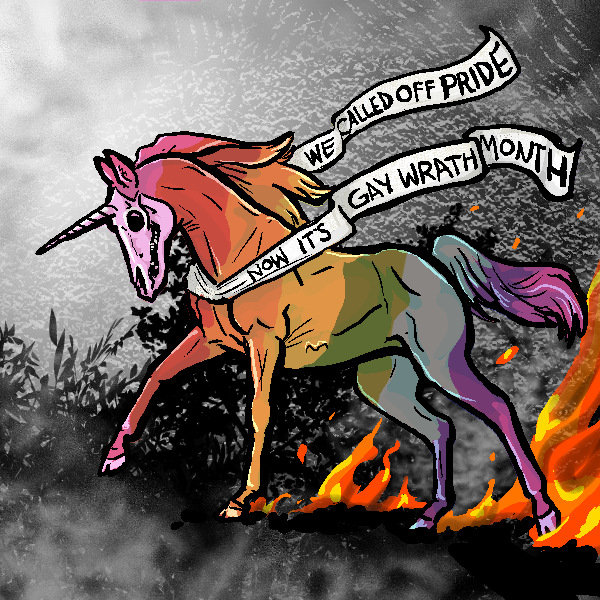The generation that turned cities into expensive playgrounds for the young is now being forced to flee to the suburbs by Eliza Relman
Everyone and everything relating to this article should be dunked on
Jandra Sutton feels like a lucky millennial. She and her partner were able to sell their house in suburban Tennessee and buy a condo in downtown Nashville in 2019, before mortgage rates and home prices skyrocketed.
A few years of suburban living had made the couple “miserable,” says Sutton, a 34-year-old writer and content creator. “The closest coffee shop was 15 to 20 minutes away, there wasn’t a lot to do in the area, and none of our friends wanted to make the drive to visit us,” she says. “It was so isolating.”

They now have 1,500 fewer square feet of living space, one fewer car, and no yard, but they’re much happier. They’re surrounded by restaurants, live music, parks, and many other “third places” to meet people and hang out. They’re regulars at their favorite neighborhood bar and bodega, where, Sutton says, “we know everyone by name and vice versa.”

The couple could afford to return to the city in part because they’re DINKS: double income, no kids. They won’t need the extra bedrooms, pricey daycares, or outdoor space that would crush their budget. Sutton’s right — they are lucky. Many millennials hoping to buy a home and have kids are being priced out of the urban neighborhoods they’ve built their lives in and that were reshaped to fit their lives.
 WHO THE HELL SAYS DINKS
WHO THE HELL SAYS DINKS
Some homebuyers who decamped for the suburbs in the horrifying first months of the pandemic have come to regret their move. But as housing costs and mortgage rates hit record highs, they’re stuck. Those who stayed in the cities are fleeing in droves, to parts unknown. Millennial homebuyers aren’t just leaving the urban core — they’re moving to the farthest reaches of the suburbs. The housing market and aging (the oldest millennials are entering their mid-40s, SMH) are turning millennials into the thing every generation swears they’ll never become: their suburban parents.

The ‘youthification’ of cities and far-flung suburbs
For nearly two decades millennials morphed dense, amenity-rich urban neighborhoods across America into exclusive playgrounds for the young and childless. Compared with Gen Xers and baby boomers, a much larger share of millennials moved to cities in their young adulthood — and stayed for longer. They wanted craft-cocktail bars over picket fences, walkable commutes over two-car garages, SoulCycle over swimming pools. In turn, cities were yassified in their image.

Millennials wanted craft-cocktail bars over picket fences, walkable commutes over two-car garages, SoulCycle over swimming pools. In turn, cities were yassified in their image.

That “youthification” trend has accelerated: Cities are getting younger, faster, from San Francisco to Boston, Salt Lake City to Seattle, Austin to Denver. But it’s not millennials who are making them younger — it’s Gen Zers. (Gen Z, it should be noted, isn’t exactly thriving in urban real-estate markets. About a third of Gen Z adults are thought to live with their parents, and many don’t think they’ll ever be able to own a home.) Millennials, meanwhile, are aging out and getting priced out into suburbia.

Recently, the Suburban Jungle Group, a real-estate advisory firm that specializes in helping New York City dwellers move to surrounding suburbs, has been getting a lot of calls from millennials freaking out as their lifestyle grows out of reach. They got pandemic-era deals and signed two-year leases, and they’re seeing their rent skyrocket. “Clients call us in a panic, saying, ‘I got my renewal, I have 30 or 60 days to let them know, and my rent is increasing up to 30-plus percent,’” said Allison Levine, the firm’s director of communications.

The pandemic only steepened a trend that’s been ousting millennials from cities for years: rising housing costs in cities.
In 2017, Tiffany Stuart, then 36, and her husband left New York City and moved to New Jersey when they realized they couldn’t afford a larger apartment for their growing family. These days, they both commute an hour each way — Stuart by train and her husband mostly by car — several times a week. Beyond tolls, car maintenance, and other commuting expenses, Stuart is frustrated by the other costs of owning a home, like leaky roofs and lawn care. Though she appreciates the greenery and her friendly neighbors, she misses aspects of city life, particularly all the West Indian restaurants she grew up around in Flatbush.

When COVID-19 shut down much of the country, millions of people were suddenly living their entire lives in their cramped apartments, and demand for larger homes shot up. And since there aren’t enough family-sized apartments in urban areas to keep up with demand, in part because studios and one-bedrooms are more profitable for developers to build, that demand shot up in the suburbs.



Census data indicates that in 2022 adults between 20 and 29 were more likely to say they moved for housing-related reasons than for family- or employment-related reasons. Hyojung Lee and his colleagues at Harvard’s Joint Center for Housing Studies have found that cities with the most expensive rents and the smallest shares of apartments with three or more bedrooms lost the largest shares of their millennial population to the suburbs in recent years.

To Lee and his colleagues’ surprise, millennials aren’t moving to nearby dense, walkable exurbs. They’re getting way out to peripheral suburbs.
“It turned out that millennials are moving to the most boring places in the world,” says Lee, who’s now a professor at Seoul National University. “They’re moving to really single-family-dominated areas with very few urban amenities.”

John Natale, a real-estate agent based in Wall Township, New Jersey, calls this phenomenon “drive till you qualify.” He says it used to be that he could find his clients a home in their price range in whichever county they wanted to be in. Now, because prices in exurbs have swelled since 2022, his millennial clients are being priced out of anything within striking distance of New York. “People are adjusting one, two, maybe even three counties over just to be able to afford a house,” he said.

Rafay Qamar, a real-estate agent in Chicago, says many of his millennial clients who left the city to buy homes in the suburbs in recent years are trying to come back. “Some of these were rash decisions because properties were moving so aggressively, so quickly. People didn’t really have a chance to shop around,” Qamar said. “In about a year or so they’re like, ‘Listen, work just opened up, and this commute is terrible. We’ve got to sell it and go back to the city.’”

But in this housing market, many are stuck. They can’t afford to sell their suburban homes, some of which have depreciated since the market highs in 2021 and 2022, particularly with mortgage rates so elevated. “A lot of people are now underwater,” Qamar said.
The urban affordability crisis is hitting all but the wealthiest. As lower-income people were priced out of cities, the rate of suburban poverty rose three times as fast as the rate of urban poverty from 2019 to 2022. Black families have been particularly affected. New York City lost about 9% of its Black residents over the past 20 years and more than 19% of its Black children and teens from 2010 to 2020. It’s part of a broader trend, dubbed a “New Great Migration,” of Black families leaving expensive northern cities for the suburbs and for the South, where the cost of living is lower.

A roundabout way to more walkable communities
It’s expensive to live in the places millennials prefer: walkable communities with lots of shops, restaurants, and public space. An analysis published last year found that homebuyers in the 35 biggest American metropolitan areas paid 34% more to live in walkable neighborhoods, while renters paid 41% more. Paul Stout, a millennial landscape-architecture student with a popular urbanist TikTok account called Talking Cities, says he constantly hears from followers who wish they could afford a home within walking distance of places like coffee shops.

“I can’t emphasize enough how many times I read comments with people saying that they wish they could live somewhere more walkable but they just simply can’t afford it,” Stout says. But while millennials wallow over the choice between a tiny apartment in a dense city and a lonely, sidewalk-less subdivision, urbanists insist any place can be dense and walkable as long as land-use laws allow it and people want to live there.

“There’s a lot of places in the suburbs that could be really lovely to live if you could only put a grocery store or a coffee shop on the corner,” Stout says. “I’m optimistic that you could actually make living walkable almost anywhere in the US, given the right package of zoning reform.”

Zoning codes and other land-use regulations are controlled by local voters — and, particularly in suburbia, they tend to be older homeowners with a penchant for the status quo. Tayana Panova, an urban researcher writing a book about suburbia’s effects on mental health, said an influx of younger “city-craving” homeowners and voters could change that, but only if they engaged themselves in the politics of it all.

Millennials could help transform suburban sprawl into town-like communities or small cities with more third places and a stronger sense of community, Panova says.
In some places, it’s already happening. “Even the farthest-flung suburbs are starting to see some of the impacts of their new millennial residents. Many that gained a significant number of new millennial residents are also becoming more amenity-rich,” Lee said. Suburban retail is booming — half of Sweetgreen salad shops are now in the suburbs, up from 35% four years ago.

“There are so many towns that in the last five, six years I’ve seen huge revitalizations, where all of a sudden restaurants and exercise studios and trendy stores start to pop up,” says Levine of Suburban Jungle. “You can move to the suburbs and not feel like you need to go to the city to have a great dinner or to see a show or live music or the arts.”

Panova says this could be “a turning point” for suburban communities with a burgeoning millennial population that “makes them more city-like.”

“If we can plant those kinds of urban seeds that grow into little communities, that would be a great way to ease the pressure on these handful of cities that are getting all the incoming traffic of people,” she said.

Indeed, if the restaurants, bars, and cultural institutions near Sutton’s home in Nashville had been as easily accessible when she lived in the suburbs, she said, she might never have felt the pull back to the city.

It’s sooooo cool that millennial made the housing prices in cities unaffordable and upped their rent ad infinitum. That was definitely a choice that “millenials” made. Its so great that housing is just an investment vehicle in this country and now housing is made completely unaffordable to people who are actually doing well let alone people who are just scraping by. I mean Jesus fucking christ. Goddamn this country
I truly don’t understand how this shit is supposed to go. I am by no means impoverished and I am simply not going to afford to be able to live where I live forever, like perhaps within the next two years, depending on what a greedy fuck my landlord is.
Once they have priced out their tenants, where do landlords think the rent is going to come from?

Literally I don’t even know. Where i live, pretty much it is incredibly expensive if you live within 45 minute drive of the city. It is insane. And the city is doing nothing about these landlords. Something has to be done really
the city is doing nothing about these landlords. Something has to be done

And the city is doing nothing about these landlords. Something has to be done really
hawaii
Pit
As I understand it (not perfectly by any means) I think for some of them the rent is secondary. They are instead simply banking on leveraging the “infinitely increasing” asset value of the property itself.
Hence so many vacant but very expensive properties. They can’t lower the rent because doing so would be acknowledging that maybe the property’s not actually worth what it says on paper.
And it’s not a bad bet honestly, because Washington knows that’s what our joke of an economy runs on now, and it would be financial suicide to let the bubble deflate at this point.
All the same, you have to imagine that sky high rent meaning no rent at all for a certain threshold of housing volume is not sustainable for long.
Hence so many vacant but very expensive properties
Tbf there really aren’t many of these. Outside of a handful of weird situations this isn’t super common and it isn’t the main reason rents are so expensive. The vacancy rates in major cities are very low, it is mostly a supply problem.
We need
 but also need to build more housing
but also need to build more housingI’m sure that’s true. I mainly just wanted to point out that this problem does intersect with policies that fuel real estate asset inflation, and that there incentives beyond collection of actual rent that are driving this bullshit. And I would also guess that even if vacancy rates are low, they are probably higher relative to the demand than is historically normal.
My fucking 20s were stolen from me by lazy penny-pinchers who arbitrarily decided that not living with mummy and daddy should be for spoiled trust fund babies of billionaires exclusively.
Greed should stop being seen as a cute, endearing quirk and instead should be seen as the real “d*generacy” ruining society (because it is)
Greed should stop being seen as a cute, endearing quirk
Are there actually people who see it that way?
Anyone who willingly introduces themselves as an “entrepreneur” or “investor”, really.
“We’re not making a world without greed, Jacob. We’re making a world where greed is a perversion. Where grabbing everything for yourself instead of sharing is like smearing yourself with shit: gross. Wrong. Our winning doesn’t mean you don’t get to be greedy. It means people will be ashamed for you, will pity you and want to distance themselves from you. You can be as greedy as you want, but no one will admire you for it.”
Cory Doctorow, Walkaway
My fucking 20s were stolen from me by lazy penny-pinchers who arbitrarily decided that not living with mummy and daddy should be for spoiled trust fund babies of billionaires exclusively.
same, and my 30s are going the same way

incredibly off topic but im very gay for your avatar
on topic: I can’t believe that our vibes influence the economy somehow why did no-one tell me this
Lmao I’m feeling pretty gay for your avatar too. And yeah they should have taught us that in school

Counterpoint to this article: what if we just killed all landlords, developers, and authors of this article, then redistributed their wealth evenly?
Removed by mod
Pack it up, folks. We’ve finally been owned. Time to close the community.
Marx never considered that landlords are necessary for people to rent property, and that speculative finance is the only way to build things. How could we all go so long without hearing this?
Please don’t read capital vol 2 & 3
way ahead of you
God damn you are dense. There would be no fucking housing deposits. There would be no mortgages. You now own the fucking house/apartment you currently live in, not a bank, not a landlord, not an investment group.
Did you think this is what happened in China when the landlord class were purged? The idea of private property is so entrenched in your brain you can’t conceive this thought: renters now just live in the house they were renting. The landlords are dead or relinquished the land, who would they be paying rent to? And there’s no landlord class, they de facto own the house they’re living in. This, but country wide.
Developers don’t build houses. Builders do. You don’t need capital to put bricks and mortar together. An architect designs a house, and the workers build it. If you take away the concept of land ownership, the developer is a redundant class. Prices won’t go up because they were the leeches that kept prices up.
In fact. And I’m sure you may have heard this before. THERE ARE MORE ENPTY HOUSES THAN THERE ARE HOMELESS PEOPLE! THEY’RE KEPT EMPTY ON PURPOSE TO DRIVE UP PRICES. IF THE PEOPLE RESPONSIBLE FOR ARTIFICIALLY KEEPING PRICES UP DROP DEAD, WHAT DO YOU THINK HAPPEN TO THE PRICES???
Removed by mod
I’ve no idea what happened in China. That doesn’t make me dense, just uninformed.
If you’re opining on subjects you don’t know about, I’d argue you’re pretty fucking dense.
I have a vote, so I’m not going to vote for someone who wants to put me in six figure debt unless they have some way to clear that.
Lol. Lmao, even. Lemme know when the
cryptidcandidate appears, I’m sure it won’t take long.
Everyone its open season right now. You have 12 hours to go hog wild before I hit the funny authoritarian button
o7
The parasite believes the host will starve without it
Let me speak your language,
Your argument is that you would never be able to buy an Nvidia GPU unless speculators are botting and scalping the entire supply after every release
As a scalper you should be thanking me for me and my friends buying up all RTX GPUs and every PS5 at every store we visit during the holiday season. I sold a used PS5 a few weeks ago for $1200 on Christmas Eve.
I will be doing the same for the PS5 Pro and Switch 2.
🪱
did you get dropped on your head as a child?
Removed by mod
How did you write all those words and not think about them once? Did ChatGPT write it for you?
Removed by mod
 Don’t you know that landlords are the source of all value?
Don’t you know that landlords are the source of all value? Good luck building houses without the people who don’t actually build anything and just move money around.
Good luck building houses without the people who don’t actually build anything and just move money around. “Redistributing their wealth” literally just means the dollars in their bank account.
“Redistributing their wealth” literally just means the dollars in their bank account.Wait, what do you mean you’re not going to pay anyone rent?

We are going to take all of your
slumsinvestment properties from you and live in them for free. We will tear down your cookie cutter single-family-housing HOA hell and replace them with community. If you’re willing to help build a new society, you will be reeducated and work to build a better world.Otherwise





i would hazard a guess that the number of people who actually want to rent is a lot lower than you think it is and a landlordless society can figure it out for those exceptions.
why are lemm.ee’ings like this?

Lol rip your inbox lemmitor

Google how many vacant homes there are in the US and then the home ownership rate in China. A better world is possible

deleted by creator
shut up dork
 don’t mind me
don’t mind me
The generation that turned cities into expensive playgrounds for the young is now being forced to flee to the suburbs by Eliza Relman
Just the headline is so insane. The trope of young (often creative) people moving to a cheap loft in NYC and interacting with the preexisting culture in odd ways is really common in 60s-90s cinema. There’s no way that young people living just a bit beyondbtheir means in a city is a millenial phenomena.
The couple could afford to return to the city in part because they’re DINKS: double income, no kids.
Man, the powers that be are MAD AS SHIT that millennials and younger are increasingly opting out of producing more labor chattel for the overlords; they wouldn’t be trying to push this acronym otherwise.
doug did it first

Also, I think they have cause and effect backwards here. It’s not that because millennials are both working and not having kids they’re able to afford to move to the city, it’s that because millennials have to both work in order to live in the city they aren’t able to have kids.
All conversations with Liberals about building housing inevitable leads to them regurgitating pro-Landlord and pro-Private developer garbage that they refuse to acknowledge is just repackaged trickle down economics but for an inelastic good (housing)
Just build some fucking social housing like Vienna did you fucking dimwits since you’re too cowardly and lead-poisoned to build Soviet/Chinese public housing, instead of building dozens of 3,000 dollar a month studios and calling it aFfOrdAbLe just because its 100 dollars under mArKET rAtE.
All conversations with Liberals about building housing inevitable leads to them regurgitating pro-Landlord and pro-Private developer garbage that they refuse to acknowledge is just repackaged trickle down economics but for an inelastic good (housing)
every liberal since genX is a reaganite in denial
They get so pissed whenever I utter one simple phrase:
“Is there an example where building a glut of these [luxury] housing units have decreased rents and housing prices anywhere?”
Like they don’t even have proof of it working and they’re still promoting it!
Woah why is your name all colorful and pretty?
Oh what the hell, it’s normal now! It was glowing orange for some reason
I am the phantom that haunts your waking dreams
I love how there are literally studies showing it’s actually cheaper to house homeless people than to harass, police and jail them and yet neolibs are just so horny for cruelty that they don’t even care it’s better for The Line
The fun new talking point from chuds is that we’re wasting too much money on housing first programs (to be clear, we aren’t) and should just… get rid of all the homeless instead.
genocidal anti-homeless rhetoric like that boils my blood like nothing else
Homelessness is the issue that pisses me off the most for exactly this reason. It’s so, so easy to solve. House them. You can implement this solution at a federal, state, county, or city level, because you don’t need funding for it because it saves you money.
Removed by mod
When my grandparent’s generation purged the entire landlord class, the land was redistributed to the peasants and basically eradicated homelessness in one of the most densely populated developing countries in the 20th century. It helped double the life expectancy and is one of the factors that helped turn China from an agrarian feudal society to a space faring nuclear superpower that has eradicated abject poverty.
Just a thought.
The solution to the housing crisis is always going to be to build more houses.
Sure. We already have enough houses built though. The solution is to have people actually living in them, instead of hoarding housing they don’t live in.
supply-side economics fails to explain this annoying little oddity though: https://usafacts.org/articles/how-many-vacant-homes-are-there-in-the-us/
also, we need to think about the types of housing being built and where. enough with the unaffordable 5 story buildings with no public transit nearby
Oh, so the same problem the US already experienced about a decade or so ago?
houses still don’t get built and the cash nexus of the inhuman consciousness of the market continues to devour all real means of production to convert it into unproductive rent extraction
The solution to the housing crisis is always going to be to build more houses.
Yes, the social and Vienna model of housing are not in conflict with this.
A 150K mortgage on a house now only worth 50K due to the more than adequate supply is going to have to be factored into your calculations, because there are a lot of us so it’ll be a big problem for the whole country.
I’m not going to weep tears over people who already homes when dealing with an issue that is primarily centered around leaving hundreds of thousands of people homeless. Like full stop I do not care about homeowners and the value of their homes since they are very often the most reactionary dogshit people when it comes to housing even by Lib standards.
They’re always the ones blocking even the most mid-half way houses for victims of domestic abuse. So excuse me if I don’t give a shit about your house’s equity while I worry for the 650,000+ people without any home in the USA.
Moreover, in the ideal case of what we’re talking about, you don’t have a mortgage anymore. You just own your home, full stop. The investment bank that you owed money to is gone. If you don’t have a mortgage, it doesn’t matter if your “property value” falls off a cliff, because housing isn’t a fucking investment. Stop thinking of it that way, and all this will make a lot more sense.
In the very least transformative scenario, you owe a public owned institution exactly what you borrowed from them, not triple (or more) what you borrowed from them because of interest. For very many people, that would amount to the same thing: lots of people have already paid the bank as much as they borrowed, but still “owe” a lot, because the first 15 years of house payments are almost all interest.
And most importantly everyone has a home and isn’t suffering out in the street with all the pain and suffering that comes with it
Does the concept of profitability in private housing just completely escape you?
Like you do realize capitalists and landlords get into housing not for the thrill of housing human beings but instead for profit, you do get that fundamental, basic, one could even say elementary fact right?
“Perhaps you should look into staying in your hick tow-”
Fuck. you. If the fact that I like walkability, being around people under 40, and not living in a fucking culture desert makes me a bougie bon vivant. Well oink oink, I’m a fellow porky too.
If the fact that I like walkability, being around people under 40, and not living in a fucking culture desert makes me a bougie bon vivant. Well oink oink, I’m a fellow porky too.
yes, that’s the spirit!
older people think they have something in common with the capitalists because they own their own home or some shit. the new version of that for millennials/genz will be that wanting to live in a decent world puts you on the capitalists’ team.
Wait, so how are millennials getting priced out of the cities by Gen Z’ers when Gen Z can’t afford to move out of their parent’s homes? It’s really about how everyone regardless of generational cohort is getting squeezed by speculators and investors.
 : “Well, if you young-un’s didn’t like all the good fancy stuff, you would never have made my investment properties so valuable to the point we kicked you back to the boonies. Oh well, you can make living in your parents’ basement cool too, right?”
: “Well, if you young-un’s didn’t like all the good fancy stuff, you would never have made my investment properties so valuable to the point we kicked you back to the boonies. Oh well, you can make living in your parents’ basement cool too, right?”
Honestly it’s not that bad, at least it acknowledges that people want services and that suburbs are insanely isolating because everything is so inconvenient it requires you block out an hour of your day just to get a cup of coffee, and housing is so expensive nobody can afford amenities.
There’s 10x more articles that conclude “Millennials are moving to the suburbs because they like suburbs” or “Millennials prefer renting to owning” or “Millennials prefer experiences to saving money”
I suspect that the first half of Millenials tried to emulate the Boomer lifestyle but the second half knew they had no chance and moved on to other things.
My oldest sibling got married and bought a house in the cheapest suburbs like 15 years ago and started a nuclear family. Another older sibling just bought a house and had a kid last year. I will never own a house or have a kid.
We’re all in our 30’s
Yep. If I were 5 years older I’d probably have a condo.
i think it’s a feature/requirement of the capitalist ideological frame to pretend like consumer demands influence the landscape far more than capitalist control of resources. can’t remember who said it, but the “the more powerful the class, the more it pretends not to exist” quote comes to mind.
developers and their creatures in government were & are the reason everything is the way it is in our communities. there’s some YT lecture from More Than Bikes about how the most desirable housing in north america is illegal to build now.
was just talking with a retiring colleague this morning about how fucked everything has gotten in the last 3 years, with sluggish wages and housing prices skyrocketing. if i hadn’t locked in a rate for my little shelter when i did a few years ago, i would be fucked right now. in the short term, all the STRs need to be straight up banned immediately. there should also be a cuban-revolution style ban on individual humans owning more than 1 home and organizations owning any homes. vacant homes should be seized and converted into community schools, shelters or third places where appropriate. finally, national rent controls requiring the absolute highest level of energy efficiency and decarbonization to qualify for listing. you want to collect rents? you better turn that place your mom owns (she lives with you now) into some goddamn star trek level housing. and even then, you’re not getting more than 5% of household take home.
the landlords have proven mao right, so they must all go and they only have themselves to blame for whatever they get.
“If you who own the things people must have could understand this, you might preserve yourself. If you could separate causes from results; if you could know that Paine, Marx, Jefferson, Lenin, were results, not causes, you might survive. But that you cannot know. For the quality of owning freezes you forever into ‘I,’ and cuts you off forever from the ‘we.'”
Different grapes of wrath quote
Damn, that quote goes hard.
It really does. I’m working on reading through his catalogue of books. I think the narrative and story archs are fine but really it’s his expanding on the ideas that he puts in them that draws me to him as an author. He’s a true scholar of the human condition.
I need to reread that book.
Hated it so much in highschool, but it just seems so based.
I think it’s a book that you need to read on your own volition. Steinbeck, as I’ve began to read more of his stuff, has a knack for injecting truthful connection and meaning into his writing.
What I mean by that is when he talks about ideas directly it metaphorically feels like when you sit down with a friend and talk about the world. ( Often times the characters are literally just doing that) I was reading cannery row by him recently and found myself taking notes because I wanted to and not just because it’s required for class or something. Here I think is a stand out example:
“It’s all fine to say, “Time will heal everything, this too shall pass away. People will forget”—and things like that when you are not involved, but when you are, there is no passage of time, people do not forget and you are in the middle of something that does not change.”
I dont know if it’s as impactful out of context but if that isn’t just the truth of the world, of human existence, distilled into a few sentences I don’t know what is. What a great author. I highly recommend revisiting him.
Housing should definitely be brought up more. It’s the perfect example of how
 will betray the oh so sacred free market principles in order to lazily make easy money despite being unproductive. If the free market could have it’s way, the Bay Area would just be the Hong Kong of the western hemisphere, and all of long Island would be dense and walkable because EVERYONE wants to live in NYC…so they would just make more NYC.
will betray the oh so sacred free market principles in order to lazily make easy money despite being unproductive. If the free market could have it’s way, the Bay Area would just be the Hong Kong of the western hemisphere, and all of long Island would be dense and walkable because EVERYONE wants to live in NYC…so they would just make more NYC.developers and their creatures in government were & are the reason everything is the way it is in our communities.
I don’t think this is correct. I’m having trouble finding a source either way about this, but I don’t think developers are particularly pro-single-family-zoning. If anything I’d figure they’d be in favor of density & upzoning since that would allow them to build & sell more real estate.
I think the main supporters of single-family zoning and Euclidean zoning are just conservative suburbanites who idealize “small towns” and really do think that’s the only correct way to construct a community.
Sorry everyone, I yassified the cities and now nobody can afford to live in them.
YassifyBot, how could you?
i thought we needed decommodification, turns out we need deyassification
look how they yassified my boy

New bit: We send landlords our bill for the service of making their property values go up.
Hell, that could be a good way to sucker porky that anyone under 40 can do, we offer landlords and other porkies that in exchange for living in a brownstone townhouse on the cheap, we improve their property values to more than make up for the reduced rent we’re getting by just existing. If we have the fucking Midas touch, I’m going to make money off of it.
 : “Anon’s yassification services. I’m going to guarantee your property values go up! All I ask in exchange for the time being is to live in one of the properties at a greatly reduced cost. I can’t work my magic otherwise.”
: “Anon’s yassification services. I’m going to guarantee your property values go up! All I ask in exchange for the time being is to live in one of the properties at a greatly reduced cost. I can’t work my magic otherwise.”
I take two arguments from this article:
- It’s Millenials’ fault, for some reason, that prices are high in the cities.
- A lot of Millenials got cabin fever and moved to the suburbs without thinking about it enough and now can’t go back to where they want to live.
Indeed, if the restaurants, bars, and cultural institutions near Sutton’s home in Nashville had been as easily accessible when she lived in the suburbs, she said, she might never have felt the pull back to the city.
Wait, isn’t that what the author is claiming caused the issue in the first place? That millennials’ insatiable and entitled thirst for craft cocktails and restaurants is what’s pricing them out of cities?
“if there were bars and venues within walking distance in the suburbs, we wouldn’t have left the suburbs”
God damn this lady is smart.
So, if we made cities too valuable to function just because of our exquisite taste. Does this mean I can pay my landlord in exposure? After all, I’m going to make the town I rent in cool.
miliranels killed the city industry
This author should be redacted but god damn every single thing they talk about in this article is true. In 2022/3 I was able to rent a room in a city - not even in the dense city center, just close enough that I was by a train stop that went downtown - and almost every aspect of my life was so much better. But I had to move out for reasons outside my control, and now there’s no place in that area for less than three times what I was paying before. The only places I can afford to live despite being employed full time are my parents’ house or waaaaay out in the sticks.
I’m in my 30s and more than a few of my childhood friends are moving back in with their parents because rent is so fucking expensive in our area. When I was younger there was that “haha you still live with your parents??” sentiment but it feels weird to think that now
When I was younger there was that “haha you still live with your parents??” sentiment but it feels weird to think that now
I’m afraid that stigma still exists
They now have 1,500 fewer square feet of living space, one fewer car, and no yard, but they’re much happier. They’re surrounded by restaurants, live music, parks, and many other “third places” to meet people and hang out. They’re regulars at their favorite neighborhood bar and bodega, where, Sutton says, “we know everyone by name and vice versa.”
god I wish there was a single appealing “third place” in my entire fucking city. a town/city of 100,000 people at that.
but there isn’t. there is just nowhere to fucking go or hang out.


































